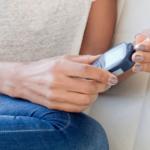
We understand that there can be a lot of confusion surrounding uterine fibroids. In fact, it seems like misconceptions about fibroids are almost as widespread as fibroids themselves: this common health condition affects 70 to 80% of women by age 50.
From myths about lifestyle choices to rumors passed down through generations, these misconceptions can cause unnecessary worry—or worse, delay proper treatment.
Let’s clear the air. Here are some of the most common myths about fibroid causes—and what the science actually says.
What Causes Fibroids?
While the causes of uterine fibroids are not entirely understood, it is widely believed that a range of factors contribute to their development. These include:
- Genetic Changes: Genetic sequencing has indicated key differences between uterine fibroid and normal uterine muscle cells. Additional research has suggested that more than 70% of fibroids possess a single stem cell mutation of the gene MED12.
- Hormones: Certain hormones, such as estrogen and progesterone, likely play a major role in fibroid development. We know that fibroids have more estrogen and progesterone receptors than normal uterine tissue. Also, fibroids tend to grow during times when hormone production increases, such as during a woman’s childbearing years. Inversely, fibroids often shrink after childbirth or menopause.
- Other Fibroid Growth Factors: An important growth factor known as Insulin-like Growth Factor (IGF) has been shown to stimulate the growth of many types of cells, including those of fibroids. IGF occurs naturally in the body.
- Extracellular Matrix (ECM): Uterine fibroids have also been linked to an increased production of Extracellular Matrix, which gives fibroids their fibrous consistency.
- Lifestyle Influences: Although more research is needed, many experts believe that lifestyle choices influence fibroid growth. Risk factors include frequently eating red meat, not getting enough fruits or vegetables, regularly drinking alcohol or caffeine, and not drinking enough water. Additionally, a high Body Weight Index (BMI), high blood pressure, Vitamin D deficiency, and early menstruation may be contributing factors.
Are Fibroids Genetic/Hereditary?
When it comes to fibroid development, there appears to be a strong genetic component. In other words, if you have a close family member with fibroids, you are more likely to develop them. In this case, it is advised that you discuss your family history with your doctor so they can monitor your situation closely.
We also want you to be aware that women of African-American descent are disproportionately affected by fibroids. Not only are black women 80-90% more likely to develop uterine fibroids than other women, they are also more likely to experience more symptoms overall, and at a higher level of severity.
Misconception #1: Fibroids Are Caused by Poor Diet
The misconception:
Some believe that eating too much red meat, sugar, or processed food can directly cause fibroids.
The reality:
While certain eating habits may influence hormone levels or inflammation, there’s no evidence that poor diet alone causes fibroids. Fibroids are primarily hormone-sensitive tumors influenced by estrogen and progesterone levels. A healthy diet can support hormonal balance and overall well-being but is not a direct cause of fibroids.
Misconception #2: Not Having Children Causes Fibroids
The misconception:
There’s a common belief that women who haven’t had children are more likely to develop fibroids.
The reality:
While some studies show that pregnancy may temporarily reduce the risk or size of fibroids, not having children does not cause them. Fibroids can affect women regardless of their pregnancy history. This misconception can place unnecessary guilt or pressure on women who choose not to have children or are unable to conceive.
Misconception #3: Birth Control Pills Cause Fibroids
The misconception
Because birth control pills contain hormones, many assume they can cause fibroid growth.
The reality:
There is no direct link between birth control pills and the development of fibroids. In fact, some hormonal contraceptives, especially those that contain only progestin, can help manage fibroid-related symptoms such as heavy bleeding. The relationship between hormones and fibroids is complex, but taking birth control does not cause fibroids to form.
Misconception #4: Fibroids Are Always Genetic
The misconception
If your mother or sister had fibroids, you’re guaranteed to have them too.
The reality:
Genetics can play a role in fibroid development, but they are not the sole factor. Many women with no family history develop fibroids, and not everyone with a family history will get them. Other factors—including race, hormone levels, and environmental influences—also contribute to fibroid risk.
Misconception #5: Stress Causes Fibroids
The misconception
Chronic stress leads to fibroid development.
The reality:
Stress affects the body in many ways, including hormone production, but it does not directly cause fibroids. However, high levels of stress may worsen fibroid symptoms or interfere with hormonal balance, which could contribute to symptom flare-ups. Managing stress is beneficial for overall health but will not prevent fibroid growth on its own.
What We Know About the Causes of Fibroids
Although the exact cause of fibroids remains unknown, research suggests several contributing factors:
-
Hormonal influence: Estrogen and progesterone promote fibroid growth.
-
Genetic changes: Mutations in uterine muscle cells may initiate fibroid formation.
-
Growth factors: Certain proteins may affect cell growth and development in the uterus.
-
Race and ethnicity: Black women are more likely to develop fibroids at a younger age and experience more severe symptoms.
-
Family history: Having a close relative with fibroids can increase your risk.
These factors likely work together, which explains why fibroid cases vary so widely among individuals.
Why Dispelling These Myths Matters
Believing incorrect information about fibroids can delay diagnosis and treatment. It may also cause women to feel shame or confusion about their health. Accurate knowledge allows for better conversations with healthcare providers and opens the door to effective, minimally invasive treatment options like Uterine Fibroid Embolization (UFE).
How Do You Treat and Get Rid of Fibroids?
Although many causes of fibroids are possibly beyond your control, you can take control of what happens next. Many women believe that their only treatment choice is a hysterectomy, or the complete surgical removal of the uterus. Fortunately, this isn’t true. Specialized fibroid treatment offers both surgical and non-surgical options.
At USA Fibroid Centers, we offer a state-of-the-art, nonsurgical fibroid treatment called Uterine Fibroid Embolization (UFE). UFE takes less than an hour and can shrink your fibroids, alleviate painful fibroid symptoms, and leave your uterus fully intact.
Some key benefits of Uterine Fibroid Embolization include:
- Involves less risk than fibroid surgery
- Does not require a hospital stay
- Is performed by highly-trained fibroid specialists
- Does not require general anesthesia
- Has a short recovery period of only one to two weeks
- Leaves the uterus intact
- Provides quick relief of fibroid symptoms
To discover whether you are a good candidate for UFE, simply schedule an appointment online today. You can choose to visit one of our leading experts at any of our nationwide centers or via our convenient telemedicine platform. Either way, we look forward to meeting you and helping you take back control of your life. To get started, call 855.615.2555 today!



